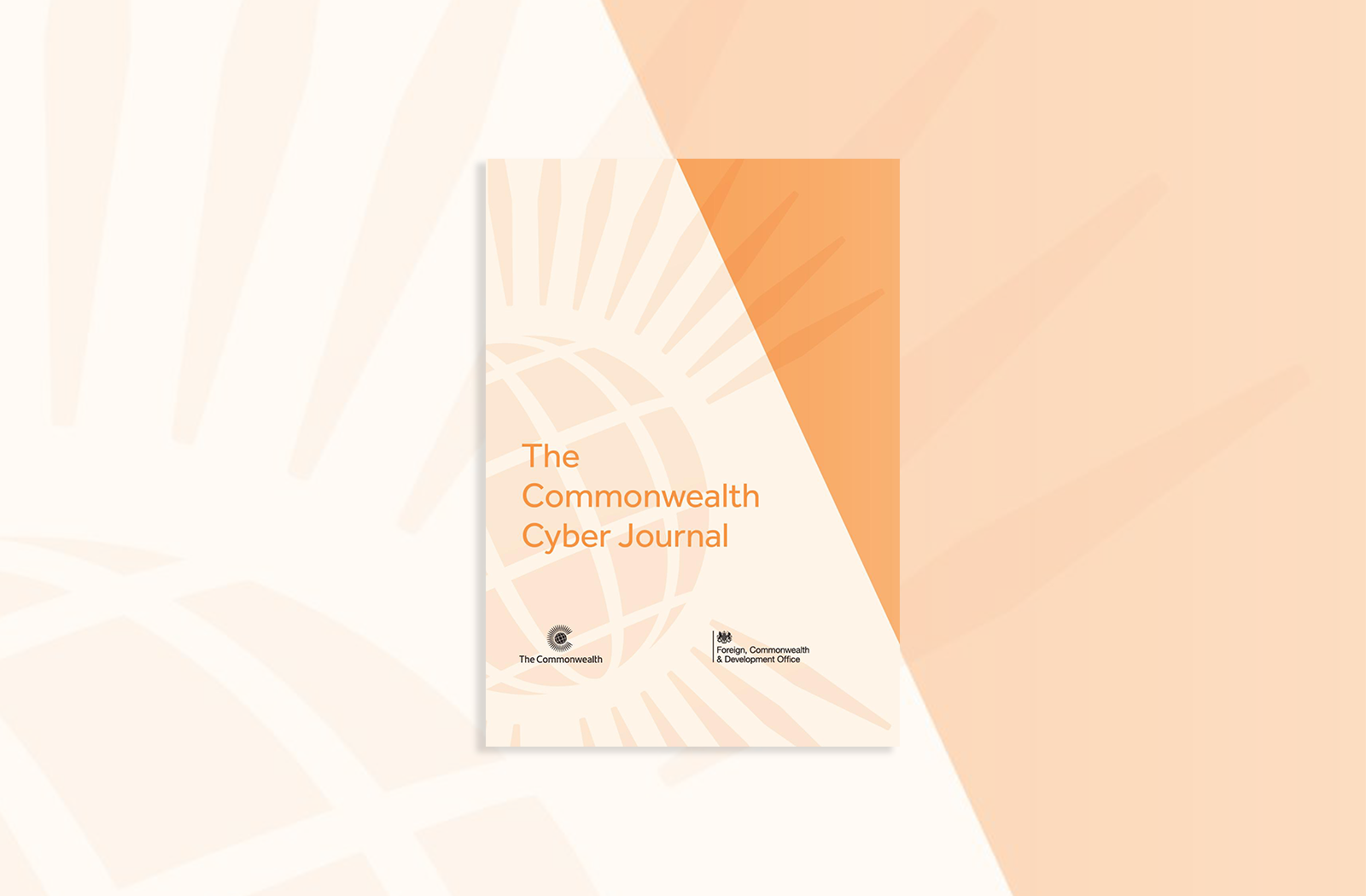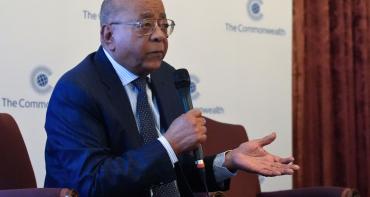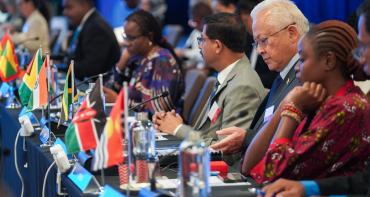
Use the links below to navigate to short abstracts of each article, with options to read the full abstract or download the full article as a PDF.
Contents
- Editorial
Nkechi Amobi - The Use and Legality of Honeypots, Tracers and Trackers in Active Cyber Defence
Brendan Walker-Munro, Andrew Cox, Grant Haroway, Joe Otway, Duncan Unwin and Sascha Dov Bachmann - Strengthening Nigeria's Cyber Frontier: Building Cybersecurity Resilience Through Legal Innovation
Iheanyi Samuel Nwankwo - Cybersecurity Threats to Critical Energy Infrastructure in India: Challenges, Opportunities and Insights for Developing Nations
Rohini Haridas, Satish Sharma, Rohit Bhakar and Chenghong Gu - Strengthening Cybersecurity and Data Protection Frameworks in Commonwealth Member Countries: Policy and Institutional Approaches
Otshepeng Mazibuko - Child Protection in the Digital Age
Mohamed Hemdani - Cyberstalking and Technology-Facilitated Intimate Partner Violence: A Review of Three African Countries
Chioma Andeh - Nexus between Cybercrime Financial Fraud and Online Gambling in Bangladesh
Mahfuzul Mithun, Md Masuldul Islam Khan and Md Habibur Rahman
Editorial
Nkechi Amobi
Short abstracts
The Use and Legality of Honeypots, Tracers and Trackers in Active Cyber Defence
Brendan Walker-Munro, Andrew Cox, Grant Haroway, Joe Otway, Duncan Unwin and Sascha Dov Bachmann
Australia, as an open market economy and democracy, is both dependent and reliant on the internet and online security for its prosperity, way of life and the functioning of our democracy. Cybersecurity, as a prerequisite for ever-increasing interconnectivity, is under assault from cyber-attacks and malicious cyberactivity being conducted by states and ‘hybrid actors’, such as cybercriminals and syndicates.
Cyber-attacks pose a serious threat to the security and integrity of entities, especially when they involve trusted insiders who have access to sensitive data and systems. To counter this threat, this paper proposes that use of active cyber defence (ACD) – such as fake files and credentials that alert the security team when accessed by unauthorised users or tracking devices that report the network activity and location of genuine trading information – can deter and detect malicious actors, often more efficiently and effectively than other methods alone.
Strengthening Nigeria's Cyber Frontier: Building Cybersecurity Resilience Through Legal Innovation
Iheanyi Samuel Nwankwo
This article addresses a critical gap in the current cybersecurity framework by proposing a novel legal framework to strengthen Nigeria’s cybersecurity regulation. It moves beyond traditional, reactive approaches, arguing for a paradigm shift towards a proactive, resilience-focused regulation that intricately weaves cyber resilience principles – preparedness, adaptability and recovery – into the legislative fabric. Cyber-resilience promotes a holistic approach to security, emphasising proactive measures to anticipate, withstand and adapt to cyber disruptions, ensuring continuity in the face of cyberthreats.
The article uniquely presents a comprehensive blueprint for strengthening Nigeria’s cybersecurity posture. It outlines key components of this cyber-resilient regulatory framework, including cyber safeguard legislation mandating risk assessments and ‘security by design,’ robust incident response mechanisms and strengthened reactive measures.
Cybersecurity Threats to Critical Energy Infrastructure in India: Challenges, Opportunities and Insights for Developing Nations
Rohini Haridas, Satish Sharma, Rohit Bhakar and Chenghong Gu
This paper explores the global issue of cybersecurity in smart grids, as it affects both developed and developing countries but with a particular focus on developing countries like India, where rapid digitisation combined with limited resources and expertise creates a unique set of challenges. By assessing India’s current cyber security maturity level, this paper identifies key technical, operational and policy gaps that need to be addressed.
Additionally, this paper highlights the potential of artificial intelligence and digital twin technology to significantly enhance the cybersecurity of smart grids, making them more resilient to emerging threats.
Strengthening Cybersecurity and Data Protection Frameworks in Commonwealth Member Countries: Policy and Institutional Approaches
Otshepeng Mazibuko
This paper explores the current state of privacy and data protection mechanisms within Commonwealth countries, highlighting the disparities, challenges and opportunities in developing more effective frameworks. Drawing on recent trends, this paper examines the effectiveness of existing legislation, policy and initiatives designed to combat cybercrime and improve data protection. It also investigates how different Commonwealth countries address issues such as cross-border data sharing, cybersecurity capacity building and digital sovereignty. It gives special attention to the role of international co-operation and institutional development in mitigating emerging cyber threats and fostering a resilient cybersecurity environment across the Commonwealth.
Child Protection in the Digital Age
Mohamed Hemdani
Online child sexual exploitation (OCSE) has become a critical focus within the evolving frameworks for international cybercrime legislation. This article examines the current approach of the Budapest Convention and the UN Cybercrime Convention, particularly in their handling of OCSE, and provides a comparative analysis with legal frameworks in the Middle East and North Africa (MENA) region. It explores the complexities of harmonising international standards and addressing regional legal differences, with an emphasis on the gaps and opportunities in combating OCSE through both global and local efforts.
Cyberstalking and Technology-Facilitated Intimate Partner Violence: A Review of Three African Countries
Chioma Andeh
Cyberstalking and technology-facilitated intimate partner violence (TFIPV) have emerged as critical challenges in the digital age, allowing abusers to monitor, exert control over and intimidate victims beyond physical spaces.
This study examines the impact of TFIPV in three countries in Africa – Kenya, Nigeria and South Africa – that have enacted legislative measures to regulate technology companies and address digital abuse. Given the limited scope of relevant legal frameworks across the continent, additional cases are considered to provide a broader comparative perspective.
Nexus between Cybercrime Financial Fraud and Online Gambling in Bangladesh
Mahfuzul Mithun, Md Masuldul Islam Khan and Md Habibur Rahman
This study explores how online gambling leads to cybercrime and relates to financial fraud, money laundering and other illegal activities in Bangladesh, drawing on an investigation of local agents for gambling companies.
A significant finding is the increasing use of online gambling by criminal organisations as a mechanism for money laundering, via digital payment systems and mobile financial services. Local gambling agents, often unaware of their participation in illegal financial activities, function as intermediaries in these transactions. Meanwhile, fraudulent practices arise within the online gambling industry. Manipulated algorithms and deceptive promotional strategies induce players into sustained financial losses.



